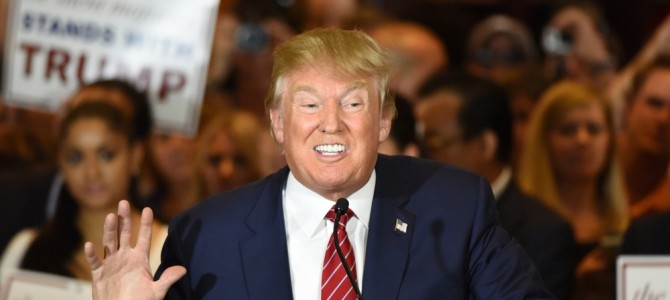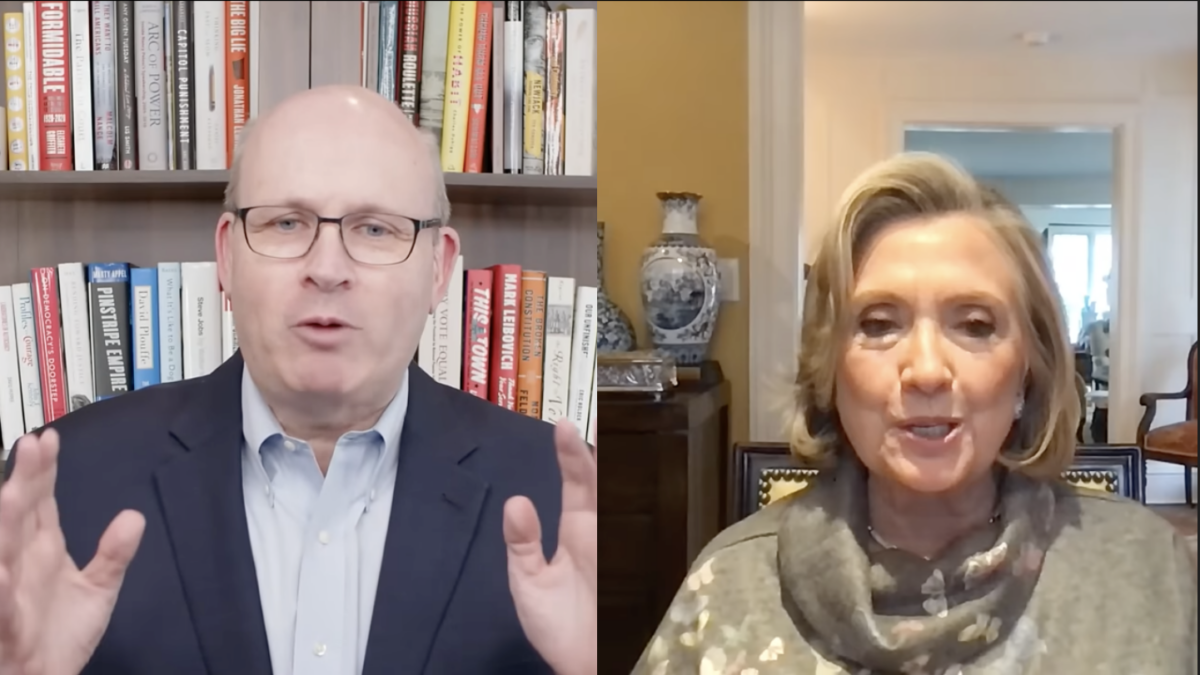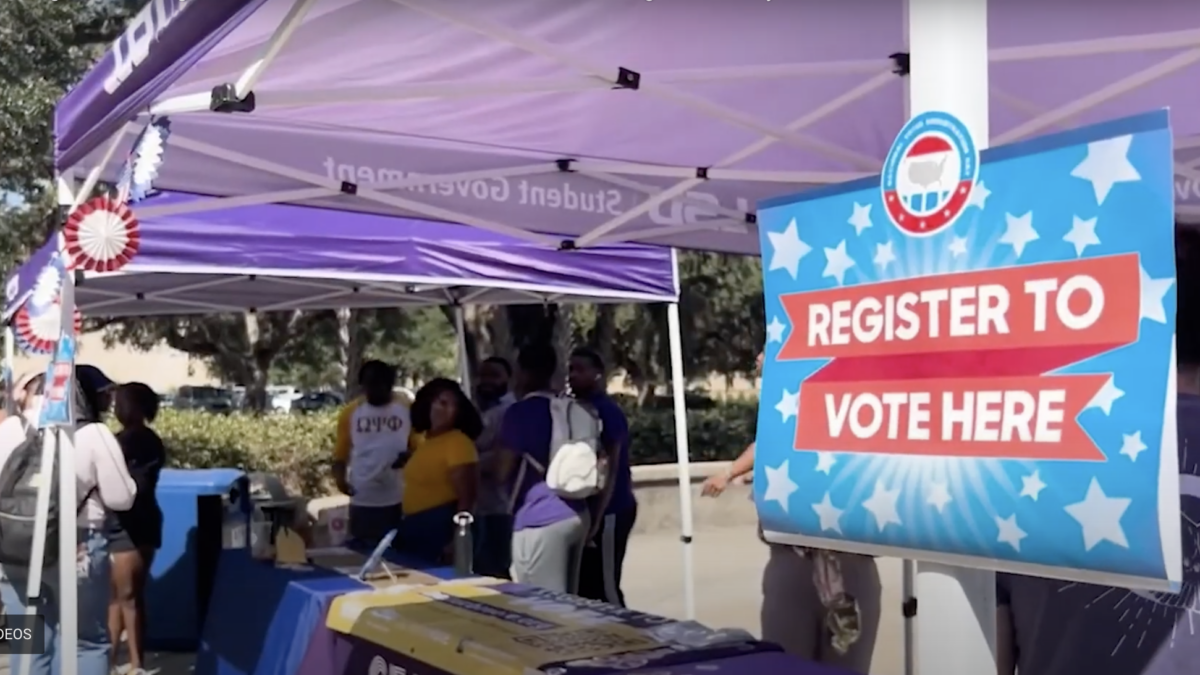
As we pick apart the candidates’ performances Wednesday night in the GOP primary debate, at least some Republicans must be wondering why, with so many experienced officeholders in the race, they cannot rid their party of Donald Trump.
The answer has less to do with Trump than with Americans’ trust in government, which has been on a half-century-long slide and has reached its nadir in the Obama administration. Support for outsider GOP candidates like Trump or Ben Carson, who now polls in second place behind Trump, or the rise of Vermont Sen. Bernie Sanders among Democrats disillusioned with Hillary Clinton, is less of an endorsement of a particular candidate than a general rejection of—even rage against—the political establishment.
As Michael Barone recently noted, voters are “willfully suspending disbelief in challengers who would have been considered laughable in earlier years.” Barone cites the deep unpopularity of the Obama administration’s major policy initiatives like Obamacare and the Iran deal, coupled with the perception that Republicans in Congress have been unable or unwilling to fight the White House on these things, as evidence that for many voters experience doesn’t count for much anymore.
The Decline and Fall of Public Trust
Barone is right. Witness the exit last week of former Texas Gov. Rick Perry, the candidate with the most experience and arguably the strongest résumé in the GOP field. But the problem goes back further than just the past seven years of the Obama administration. One can trace the erosion of trust in government back nearly 50 years, to its high point in 1964 when 77 percent of those polled expressed trust in government to its record low of 19 percent in 2013.
Pew Research Center compiled polling data on public trust in government from 1958 to 2014 in a handy interactive chart that everyone should spend a lot of time staring at this election cycle. Aside from brief spikes in trust following the First Gulf War in 1991 and the attacks of September 11, trust in government has been declining steadily since the first years of the Johnson administration.

Notice the only two spans during which public trust in government actually grew: the Reagan and Clinton years—eras marked by bipartisan cooperation between the White House and Congress. Although Ronald Reagan was always a staunch conservative, he worked with Democratic Speaker Tip O’Neill to pass a major tax reform in his first term and comprehensive immigration reform in his second. During Bill Clinton’s first term, the 1994 midterm elections put Republicans in charge of the House for the first time since 1952, and Clinton responded by working with Speaker Newt Gingrich to pass welfare reform and a balanced budget, among other initiatives.
This cooperation was possible only because Reagan and Clinton were able to fracture coalitions within the opposing party. They couldn’t just ram through White House policies with one-party supermajorities, as Obama has done. Voters saw Republicans and Democrats (at least some of them) working together to pass major legislation, and that helped build Americans’ confidence in government throughout these two administrations.
When George W. Bush took office in 2001, he was riding a wave of rising confidence in government. Historic polling data from Gallup corroborates Pew’s research on this point: trust in government crested in the aftermath of 9/11 then fell sharply with the invasion of Iraq, from which it hasn’t recovered.

9/11 Temporarily Broke the Decline
For a brief moment after 9/11, some predicted a renaissance of New Deal-style liberalism among American voters from across the political spectrum. The trauma of the attacks would usher in a resurgence of faith in the competency of government to accomplish difficult things—the kind of confidence Americans had during the Eisenhower and Kennedy administrations.
That November, a Gallup poll found 89 percent of respondents approved of how Bush was handling the war on terrorism, and 77 percent approved of Congress. The national mood about the federal government was very mid-twentieth century. “Had not government won the war, ended the Depression, built the highways, brought electricity to the farmlands, vanquished the economic terror of old age?” wrote the late Michael Kelly in January 2002. “Government did great things for all of us.”
Sure enough, the Bush administration tried to do great things—tried to vanquish al-Qaeda and rebuild Iraq, tried to pass immigration reform, tried and succeeded in expanding Medicare, bailing out the banks, passing No Child Left Behind. After 9/11, compassionate conservatism met the War on Terror.
But the result of all this ambitious government action was an administration whose policies today are almost universally denounced by conservatives. Back in 2002, Kelly, then editor of The Atlantic Monthly, described Bush’s domestic philosophy as “activist, desirous of progress in addressing social ills. Liberal, you might say.” Today, it’s hard to find a self-identifying conservative who will endorse Bush’s domestic record. While many conservatives, including the more serious GOP candidates, want to address social ills, they’re deeply suspicious of the federal government’s ability to accomplish what it sets out to do.
One Government Failure After Another
It’s not hard to see why. The end of the Bush era brought what many considered to be one major government failure after another—the subprime mortgage crisis, the financial crisis, the great recession. The government’s failure to prevent these things, combined with responses that hampered a full economic recovery, damaged government credibility among Republicans and Democrats alike. It’s one of the reasons Obama got elected.
But the failures, and the perception of dishonesty, continued under Obama. In its efforts to sell the Affordable Care Act, the Obama White House made promises that simply weren’t true—if you like your plan you can keep it, families will save $2,500 a year on premiums, and so on. Five years later, the healthcare law is still deeply unpopular with most Americans.
On foreign policy, Obama has prized a nuclear deal with Iran above all else, leaving his administration with no viable response to the Syrian civil war, ISIS, the disintegration of Iraq, and the refugee crisis now enveloping Europe. The Iran deal, like Obamacare, is being rammed through Congress on strict party lines. Many Americans understandably feel Washington DC is more partisan and dysfunctional than ever.
Taken together, the Bush-Obama years have given both conservatives and liberals plenty of reasons to distrust the government and doubt its competency. As recent Pew polls show, dissatisfaction with the political establishment predates the rise of outsiders like Trump and Ben Carson.
For now, the feeling is stronger among Republicans than Democrats, but the trend is bipartisan. Lawrence Lessig, the Progressive, bespectacled Harvard Law professor who announced his candidacy for the Democratic nomination last week, flatly summed up the mood: “There is no connection between what the average voter wants and what our government does.”
It’s a line Trump himself might have delivered.







